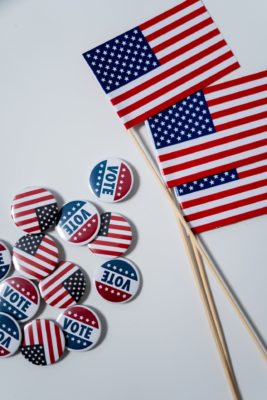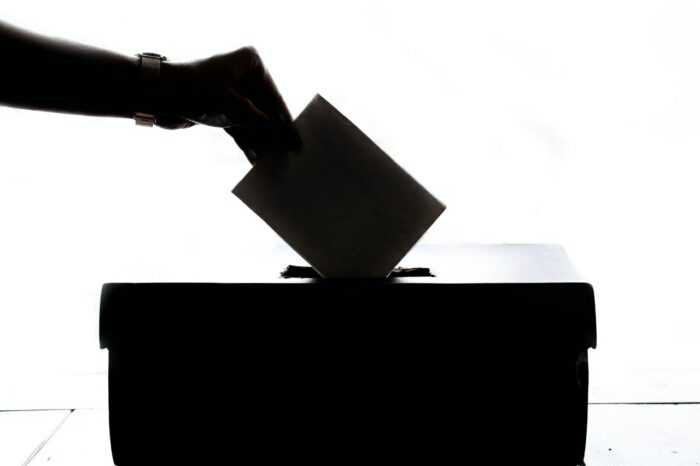Voting And The Right To Vote
I don’t remember reading many speculative stories set in a democracy in which the characters had a government by the people and for the people. Some have dictators, others have kings, and a few have oligarchies, either religious or secular.
A number don’t include the political aspect of their world, but I tend to think diving into government and the politics that surround it, deepens the sense that this fantasy world or this science fiction world is a real place.
But why not democracies? Some, like the Hunger Games books or the Safe Lands series or Divergent and the books that follow, are predicated on the existence of evil or unfair dictatorships.
Others, like the Harry Potter books, adopt an existing government, modified to fit the circumstances of the fantasy world. So in Hogwarts, the school established to teach young witches and wizards, the students were under the rule of the headmaster, who was under the Ministry of Magic, all operating in the shadows within the larger government of England,
Clearly the students didn’t have a say in the rules they were to obey in the school. And the faculty and staff didn’t have a say when they were given a hostile headmistress who burdened the school with inappropriate rules. The Ministry of Magic was only good as long as it was free from the influence of Voldemort and his followers.
Then there are those stories like Karen Hancock’s Return of the Guardian King series that hing on the fight for control of the kingship of a country, and the political intrigue between nations that play a part in the struggle.
 This latter category is often built on a Middle Ages model, years before democracy surfaced in the real world. Consequently, a democracy would perhaps seem like an anomaly or even an anachronism in such novels.
This latter category is often built on a Middle Ages model, years before democracy surfaced in the real world. Consequently, a democracy would perhaps seem like an anomaly or even an anachronism in such novels.
Some stories that are supernatural suspense or Biblical fantasy, build on the warfare between good and evil, or Satan and God. The plot is less concerned about the governmental structure of the physical world of the story, and much more concerned with the organization of the spiritual “sides”: Satan and his minions, and God and His angels and human servants. Clearly, no democracy in those types of novels.
Because the United States is a representative democracy, it seems a little surprising that so few (any?) stories by American authors appropriate this form of government for their story world. I mean, clearly there are many ways to produce conflict in a democracy. An individual could struggle to influence those closest to him to choose a different person or persons to vote for. Perhaps the story could deal with corruption from one of the sides. There seems to be a wide array of storylines available for someone choosing to put democracy in the center of their worldbuilding.
Of course, we do have the classic satirical novel from George Orwell: Animal Farm. The animals overthrew their farmer so that they could rule themselves. But the pigs became the actual leaders (an oligarchy), and they ended up dictating to the rest of the animals.
The allegory was a satire on socialism which developed from the idea of equality of all the animals. The short book is perhaps a good read, maybe even a necessary read, for this present day.
 All kinds of people and organizations (such as the NBA, Major League Baseball, and the NFL) are running promotions telling people to vote. I hear it on Christian radio and I see it on the TV networks. The point seems to be to increase the number of Americans, who all have the right to vote, actually exercising their right.
All kinds of people and organizations (such as the NBA, Major League Baseball, and the NFL) are running promotions telling people to vote. I hear it on Christian radio and I see it on the TV networks. The point seems to be to increase the number of Americans, who all have the right to vote, actually exercising their right.
No one says how the person is to vote—just that the ultimate goal is to go to the polls or mail in their official ballot, preferably early.
The problem I have with all this push for election participation is the fact that there is no emphasis on becoming informed about the issues or candidates. We shouldn’t just say “Vote.” The message should be, Be informed, and Vote.
Too many people are willing to, essentially, give their vote to another. They follow mindlessly what their Union says or vote because this or that candidate is a member of a certain political party. Worse might be, the vote for someone because of a celebrity endorsement. Sure, she’s a famous person in the music industry, so she MUST know what’s best for the country. Yeah, and if you believe that, you might be interested in some really prime lake-front property in Death Valley.
In all these rambling thoughts, it seems clear that a democratic government is a breeding ground for all kinds of fictional conflict. So why do we not see more speculative stories set in a world with at least one country holding to democracy? Or are there a number that I’m unaware of?
– – – – –
Photo credits: Photo by cottonbro from Pexels;
featured image by Element5 Digital from Pexels






























I’ve already recommended this to Travis, so I’ll extend the recommendation to everyone with the caveat that this is a long, LONG 80s anime that is kinda rambly and melodramatic.
Legend of Galactic Heroes is about a war featuring a corrupt democracy and an empire that gets taken over by an effective and humane dictator. The empire is slightly German/Nazi flavored.
It’s currently owned by Sentai Filmworks, who stream on HiDive or bundled in VRV.co
Technically this country is not a democracy but rather a representative republic because the founders feared that a democracy would eventually become a system where the minority would tyrannized by a majority.